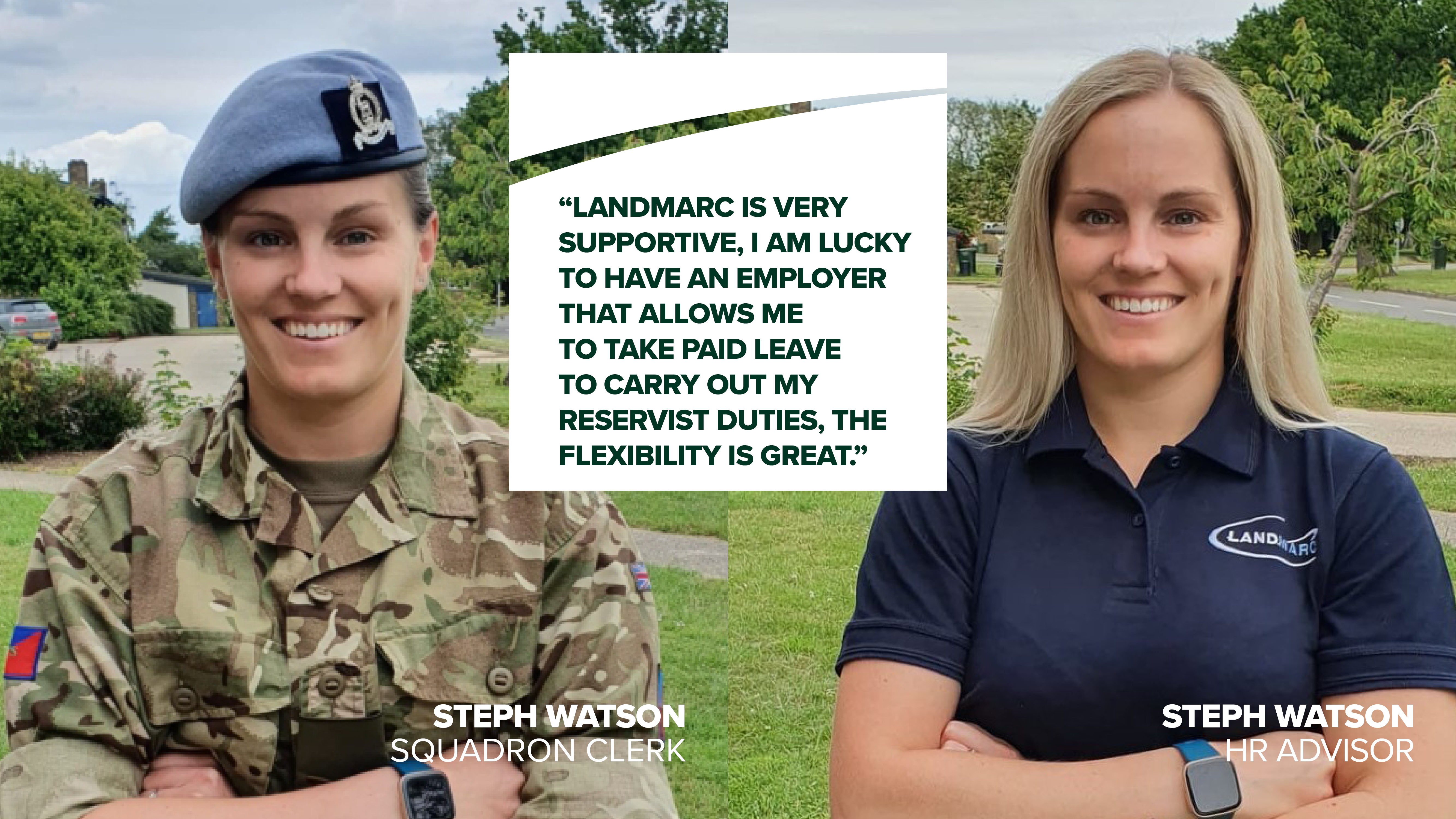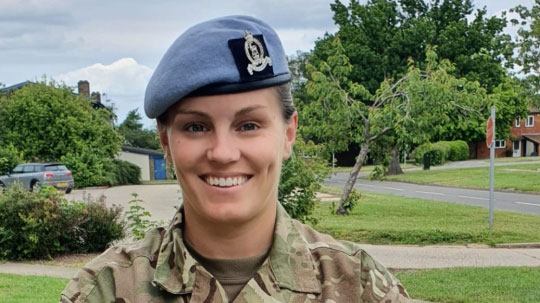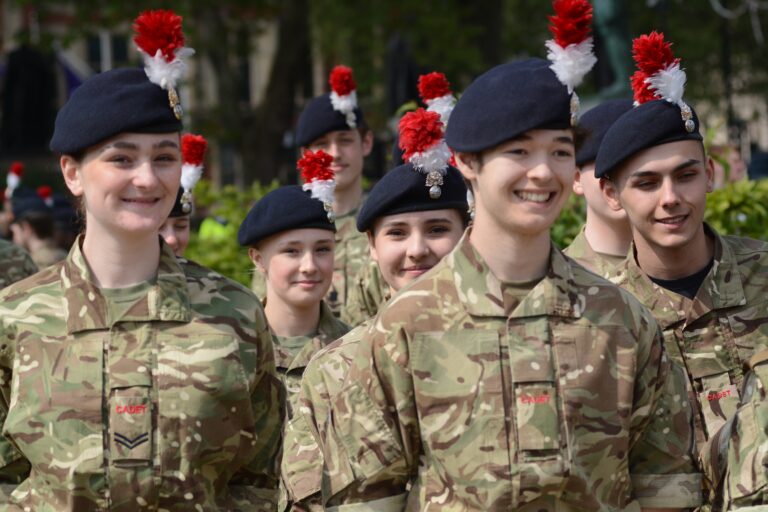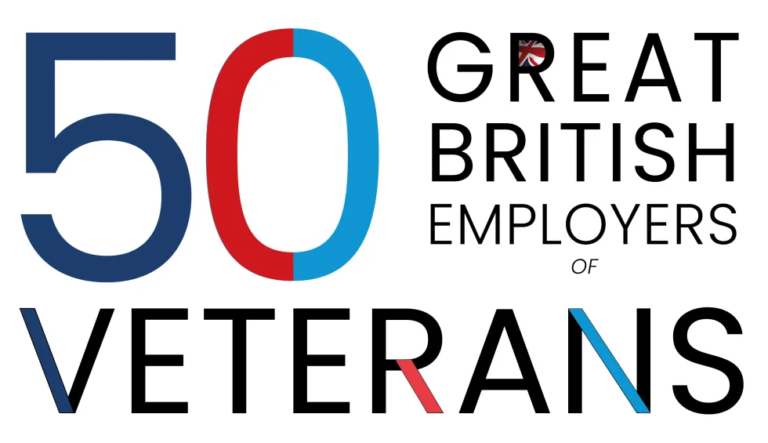Today we celebrate Reserves Day, a day which highlights and recognises the valuable contribution reservists make to our Armed Forces. Reservists give up their spare time to serve in the Reserve Forces, balancing their civilian life with a military career to ensure that, should their country require them, they are ready to serve as part of the military.
Over 25 per cent of our team is made up of personnel with an Armed Forces background, which includes veterans, reservists, their families and those who support the cadets. We would like to say thank you to each and every one of you for your dedication, professionalism and commitment to serving our nation.
We spoke to one of our valued reservists about their experience, Steph Watson, HR Advisor at Head Office, who joined the Reserves two years ago having served in the army for six years.

Steph Watson, Clerk and HR Advisor at Head Office
“I am in my second year of being a reservist now following six years’ service as a full time soldier. Most days are a normal working day in my civilian life; however, one evening a week and approximately one weekend every couple of months I will try to get out into unit life. This is extremely varied; one evening I may be helping my squadron submit their expenses as a clerk and the next weekend I’m skiing in the French Alps or live firing on a Landmarc range!
A supportive employer
“Landmarc is very supportive; a lot of reservist work can be completed around your full time job, however there are times in the year such as annual camps or training courses I need to attend during the working day. I am lucky to have an employer that allows me to take paid time out to go and do this. It can be tricky to fit everything in, especially with a young child, but having that flexibility is great. My unit is also supportive; they expect your day job to come first and the reserve commitment second. Keeping a good communication channel with both employers is key and planning months in advance really helps.
Reservists are resilient, flexible and committed
“I think all employers should aim to support their staff who choose to serve. From what I have seen during my time as a reservist, those I work with have demanding day jobs, such as GPs/nurses, firefighters and farmers to name a few. To then leave at the end of their working day and choose to do additional hours upskilling themselves shows resilience, flexibility and commitment – which I think are great traits for any employer to look for in an employee.
“With the Regular Army reducing in size and reservists expanding, it is more important than ever to get behind our Armed Forces.
A robust training programme
“Joining as an ex-regular, I had a reduced amount of training that I had to do and skipped the first part. However, if you are a new joiner you will need to complete Phase One training, which is your basic soldiering skills. These can be completed in block weeks or over a number of weekends.
“You will then move onto Phase Two training where you will learn your trade. Dependant on what job choice you have been successful for will depend on the length and training involved. My career course was an initial two week course and I am now working towards my class one which involves work based assessments. Once I have completed this, hopefully by the end of this year, I will be eligible for my next promotion to Corporal. Overall it takes around a year to complete your initial training.
Balancing the day job
“The main challenge I have found is trying to balance reservist duties with my day job. There is such a wide range of things you can do so it is tempting to over commit, but it is about being realistic about what you want to achieve during the training year. For me, I have to prioritise my trade training this year and getting boxes ticked for promotion but once I have completed that I can spend the rest of the year skiing or doing the fun stuff, so it definitely pays off.
“I am currently booked onto a Trauma Risk Management course to attend over the summer; this will allow me to provide appropriate support to peers in the aftermath of traumatic events. However being an occupational mental health support process, this will definitely be a transferrable skill I can use in my day job in the HR team at Landmarc too!
“If you’re thinking about joining the reserves then what are you waiting for? Go for it! I have had so many highlights during my time as a reservist but I would say the opportunities to go adventure training are brilliant! Whether it is sailing, skiing, cycling or parachuting, everything is available to you…and you get paid to do it! Oh and driving a huge tank is quite fun too.”




